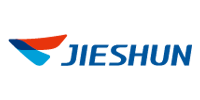JIESHUN: Deep Learning for License Plate Recognition

Referring to license plate recognition, one thing that cannot be avoided is "deep learning algorithm". In terms of marketing promotion, the parking equipment manufacturers often advertise that their license plate recognition products are using deep learning, artificial intelligence and even reach a recognition rate of 100%, which has indeed attracted a lot of attention.
So how much does it improve the accuracy of license plate recognition? Do you really understand deep learning? This article will take you to uncover the mystery of "deep learning".
As we all know, under different lighting environments, the results of license plate recognition may be affected. For example, the license plates on sunny days, rainy days or snowy days are different in human physiological vision. Judging from the photos taken by the camera, photos on sunny days are generally clearer, but strong sunlight will cause the license plate to reflect light, making it difficult to distinguish details; cloudy and rainy days will cause the picture to be dim and blurred; snow may also cover some key areas of the license plate.
There are many types of license plates, with different colors, shapes and sizes. The shooting angle and shooting distance will affect the display of the license plate in the picture. In addition, even on the same day, changes in the angle of sunlight and light intensity will affect the image quality.

In the past, the recognition accuracy rate of the first-tier manufacturers' license plate recognition products in the market had been maintained at 99.5%. For a long time, this bottleneck had been difficult to break through, until the convolutional neural network (CNN) appeared in front of us.
Nowadays, convolutional neural networks are very popular in the field of deep learning, especially in computer vision. It is widely used in image fields such as target detection, tracking, behavior recognition, image classification and segmentation.
Compared with traditional recognition algorithms, what are the advantages of deep learning technology based on convolutional neural networks?
Traditional machine learning algorithms generally use artificially designed "feature extraction methods". These characteristics can be applied to certain types of tasks and have a certain versatility. However, since they are all artificially designed features and are not suitable for all scenarios, it is difficult to fundamentally solve the problem. For example, the license plate in a complex scene cannot be captured; the difficulty of segmentation of the license plate number is very high, etc. Therefore, the success of feature extraction is the key to the algorithm.
With the emergence of neural networks, this part of the work of artificially designed features can be automatically learned by machines through neural networks without manual intervention. We use deep neural networks to extract deep and abstract high-level features, which can improve the algorithm for better performance.

The reason why humans can evolve from primitive to modern is because they can continuously improve their cognition and understanding through self-learning. Through deep learning algorithms based on convolutional neural networks, machines can continue to evolve like humans. Through the training of a large number of license plate samples and the accumulation of experience, they have become smarter and smarter. Even if the license plate is not clear, the machine can accurately recognize the license plate.
As a leading company in the field of entrance and exit control, JIESHUN has invested a lot of research and development resources in license plate recognition.
JIESHUN's latest license plate recognition algorithm V3.0, through convolutional neural network license plate detection and end-to-end license plate recognition, can accurately predict the position of the license plate in the video, without the need for character segmentation of the license plate number, and directly convert the corrected license plate image Input to the end-to-end recognition network to get the result.
Compared with traditional machine learning algorithms, the license plate detection and recognition technology based on convolutional neural network has obvious advantages in the recognition of complex scenes. It has a good recognition effect for weak light, blur, and large angle recognition, which can greatly reduce the occurrence of misrecognition. It breaks through the technical bottleneck of traditional algorithms in license plate correction and license plate type recognition.

The full-deep learning architecture license plate recognition algorithm is currently the most advanced architecture, and JIESHUN has taken the lead on this road. The JIESHUN License Plate Recognition V3.0 algorithm using deep learning technology can achieve a license plate recognition accuracy rate of over 99.8%. At the same time, all cloud hosting projects connected to the SkyOpen platform can use AI brains to automatically correct license plates, and the recognition rate can reach more than 99.95%!
With its popularization in more than 100,000 parking lots around the world, JIESHUN will provide parking operators and car owners with a better service experience.
About JIESHUN
The world leader in smart parking with 100,000 parking lots globally, positioning No.1 in China. Established in 1992 as Shenzhen Jieshun Science and Technology Industry, JIESHUN is the world's leading one-stop supplier of smart parking solutions. We offer complete and customized Entrance and Exit Control solutions, including a parking management system (PMS), parking guidance systems (PGS), barrier gates, pedestrian gates, access control, as well as a unified cloud-based platform for centralized monitoring and management.



Comments
There are no comments yet for this item
Join the discussion